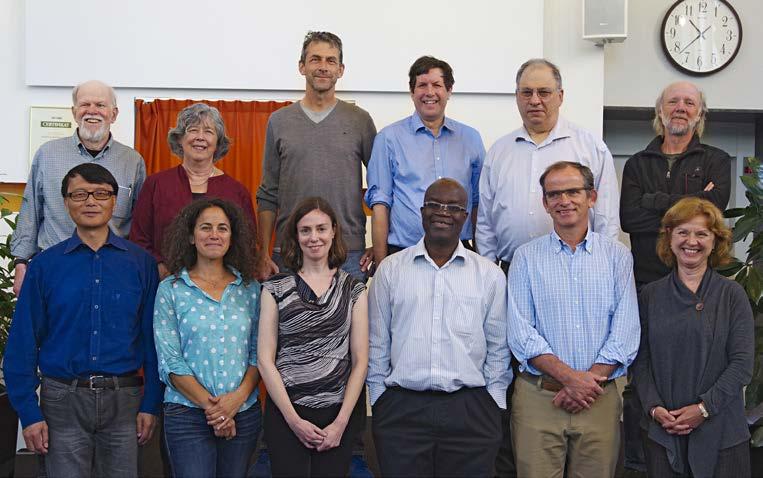STOCKHOLM RESILIENCE CENTRE
Research highlights The Beijer Institute and the Global Economic Dynamics and the Biosphere Programme The collaboration with the Beijer Institute, SRC’s founding partner, and the Global Economic Dynamics and the Biosphere (GEDB) Programme, both part of the Royal Swedish Academy of Sciences (the Academy), remains strong and important EXAMPLES OF COLLABORATION include the Beijer Institute’s research programme Complexity, Technology and Governance. As part of the programme a joint workshop on human-machine-ecology was held in January at Princeton University. In October leading Swedish and US academics, the private sector and UN organisations met in New York to explore risks and opportunities posed by AI (see page 58). The event was hosted by the Consulate General of Sweden in New York, the Beijer Institute, SRC and Princeton Institute for International and Regional Studies. A significant volume has been published during the year: Global Challenges, Governance and Complexity: Applications and Frontiers, a book edited by Victor Galaz who also leads the Complexity, Technology and Governance programme. In January, Beijer and the SRC in collaboration with the NatCap group of Stanford University organised a major workshop at the Academy in Stockholm entitled Urbanisation in the Anthropocene – in support of a liveable planet. Other Beijer workshops focused on imaginaries and the biosphere, involving leading scholars from Harvard University and Stanford University, and on marine mammal health in collaboration with Princeton University. The SRC, Beijer and GEDB also worked closely together in their contributions to the EAT-Lancet Commission on Food, Planet and Health. The research offers six strategies to feed 10 billion people healthy and sustainable diets. The progressive science-business collaboration with SeaBOS and the Keystone Dialogues continues in 2020 with jointly organised meetings in Norway and Thailand (see page 60). In addition, GEDB's work on biosphere finance and global health and biosphere stewardship has attracted a strong interest from the finance sector, in Sweden and globally with several interactions during the year. Inspiring collaborations led to several joint publications including articles on humans as a major driver of evolution (Annual Review of Ecology, Evolution, and Systematics); the challenge of corporate biosphere stewardship (Nature
36
The Royal Swedish Academy of Sciences. Photo: F. All
Ecology & Evolution); identifying financial levers (Science Advances); proposing economic policies for planetary boundaries (Nature Sustainability); exploring market responses in small-scale fisheries (Frontiers in Marine Science); placing human behaviour as part of the biosphere (Nature Sustainability); revealing the role of migrants’ remittances in regime shifts (Environmental Research Letters); clarifying urban resilience (Nature Sustainability); and unravelling the anatomy of the Anthropocene (Nature). The third generation of Beijer Young Scholars, an international network of about 20 postdocs and late-PhD students had their first meeting in the spring, focusing on globalisation and the biosphere. Finally, the Stockholm Seminars, a series featuring some of the world’s most prominent experts on global sustainability, held a special event celebrating the 200th Stockholm Seminars, entitled Water as the bloodstream of the Biosphere (read more on page 64–65).
Read more: www.beijer.kva.se and www.gedb.se
















